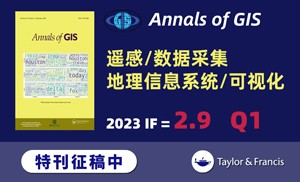International Marketing Review ( IF 4.8 ) Pub Date : 2020-07-10 , DOI: 10.1108/imr-02-2019-0086 Sara Melén Hånell , Emilia Rovira Nordman , Lars-Gunnar Mattsson
Purpose
This study addresses the research question: How does the experiential knowledge, superstitious knowledge and the wisdom of CEOs influence the internationalization behaviour of SMEs?
Design/methodology/approach
An exploratory qualitative study is used. Longitudinal case studies of two Swedish life science companies are analysed.
Findings
An individual's prior experiential knowledge influence the newly started SME's market commitments and internationalization behaviour. Such prior experiences can enable early and rapid resource commitments in the newly started SMEs. Relying upon such prior experiential knowledge in deciding upon the company's market commitments however heightens the risk of superstitious learning. The findings illustrate how wisdom can work as an antidote to superstitious learning. Wisdom lures even experienced CEOs away from believing they know more than they actually know.
Research limitations/implications
The study contributes to extend the Uppsala model by incorporating the role of individual-level experiential knowledge. The study also adds value to the literature on small firm internationalization by providing propositions for how the prior knowledge of individual key decision makers influences SMEs' internationalization behaviour. The propositions provide new input to the ongoing discussion in the literature and help to guide future research.
Originality/value
Given the fact that the Uppsala model is centred upon a firm-level view on experiential knowledge, our theoretical understanding is still limited regarding how individual-level experiential knowledge influences the internationalization behaviour of SMEs. This study addresses calls for research on how individuals' prior knowledge influences small-firm internationalization.
中文翻译:

中小企业国际化过程中个人经验知识的本质:迷信学习的陷阱和对智慧的需求
目的
这项研究解决了以下研究问题:经验知识,迷信知识和CEO的智慧如何影响中小企业的国际化行为?
设计/方法/方法
使用探索性定性研究。分析了两家瑞典生命科学公司的纵向案例研究。
发现
个人的先前经验知识会影响新成立的中小型企业的市场承诺和国际化行为。这些先前的经验可以使新成立的中小型企业能够及早而迅速地做出资源承诺。然而,在决定公司的市场承诺时依赖于这些先前的经验知识会增加迷信学习的风险。这些发现说明了智慧如何能够作为迷信学习的解毒剂。智慧甚至诱使经验丰富的CEO都不相信自己知道的东西比实际知道的要多。
研究局限/意义
这项研究通过结合个人层面的经验知识的作用,为扩展Uppsala模型做出了贡献。这项研究还通过提出关于各个关键决策者的先验知识如何影响中小企业的国际化行为的命题,为有关小公司国际化的文献增加了价值。这些提议为文献中正在进行的讨论提供了新的投入,并有助于指导未来的研究。
创意/价值
鉴于Uppsala模型是以对经验知识的公司层面的观点为中心的事实,对于个人层面的经验知识如何影响中小企业的国际化行为,我们的理论理解仍然受到限制。这项研究旨在呼吁人们研究个人的先验知识如何影响小企业的国际化。









































 京公网安备 11010802027423号
京公网安备 11010802027423号